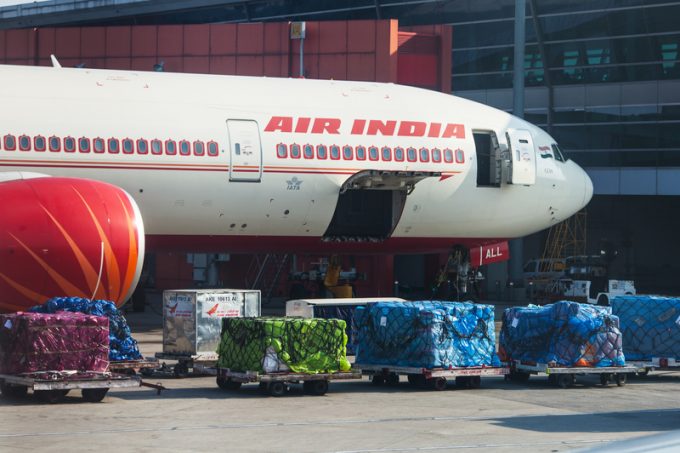Hapag-Lloyd revamps Asian feeder network ahead of Gemini launch
A new ocean loop connecting India and China is the latest in a series of ...
XOM: GO GREEN NOWKNIN: BOUNCING OFF NEW LOWS HON: BREAK-UP PRESSURECHRW: UPGRADESZIM: LAGGARDFWRD: LEADINGMAERSK: OPPORTUNISTIC UPGRADETSLA: GETTING OUTDSV: DOWN BELOW KEY LEVELLINE: DOWN TO ALL-TIME LOWS AMZN: DEI HURDLESAAPL: DEI RECOMMENDATIONAAPL: INNOVATIONF: MAKING MONEY IN CHINAMAERSK: THE DAY AFTER
XOM: GO GREEN NOWKNIN: BOUNCING OFF NEW LOWS HON: BREAK-UP PRESSURECHRW: UPGRADESZIM: LAGGARDFWRD: LEADINGMAERSK: OPPORTUNISTIC UPGRADETSLA: GETTING OUTDSV: DOWN BELOW KEY LEVELLINE: DOWN TO ALL-TIME LOWS AMZN: DEI HURDLESAAPL: DEI RECOMMENDATIONAAPL: INNOVATIONF: MAKING MONEY IN CHINAMAERSK: THE DAY AFTER

In a significant move, India has liberalised its aviation policy to permit foreign cargo airlines to operate out of all its international airports – a mandate lasting three years.
“The open sky policy for foreign cargo carriers has been reviewed by the government,” said India’s Directorate General of Civil Aviation (DGCA).
Under restrictions imposed in 2020 among Covid-related protocols, ad-hoc freighter operations by foreign carriers were allowed only from the six major airports – Mumbai, Delhi, Bengaluru, Chennai, Kolkata and Hyderabad.
Now, the DGCA said: “The operations of foreign and non-scheduled freighter charter service shall be allowed at all international airports for a period of three years to facilitate air cargo movements.”
The policy is widely believed to be a particular useful for the perishables trade, as farm producers and exporters in the interior can explore newer global markets and avoid the supply chain disruption on the ocean side.
Air cargo industry stakeholders generally welcome the announcement. Vineet Malhotra, co-founder and director of Mumbai-based Kale Logistics Solutions, told The Loadstar the policy change was “long overdue.”
He said the non-metro airports, which had “diligently developed robust cargo infrastructure in recent years, stand to gain significantly, and it will bolster the Indian economy and offer additional export capacity”.
He added: “The timing couldn’t have been more opportune, aligning with India’s efforts to reduce logistics costs to 5% of GDP.”
The policy review follows the government setting an ambitious target of 10 million tonnes of air cargo trade by 2030, and more freight-only airline start-ups are entering the fray to grab a share of the booming market.
And also seeing the potential, more foreign airlines have introduced new connections out of India – the most recent from Kenya Airways, a twice-a-week offering from Mumbai to Nairobi with a B737-800 freighter.
Additionally, larger domestic carriers, like Air India and IndiGo, have large-scale cargo growth ambitions, backed by massive belly-hold capacity additions and dedicated freighter deployments.
“Air India is excited to be a leading air cargo service provider in the country,” Ramesh Mamidala, head of cargo, told The Loadstar. “As a major facilitator for efficient logistics and exports, we are fully committed [to new target goals].”
Another industry veteran suggested the open skies policy would help drive air freight connectivity closer to cargo-origin points, as major hub airports grappled with growing congestion issues. And non-metro airports, like Goa, Chandigarh, Amritsar, Lucknow and Baroda, would benefit from new services, the source added.
The congestion pain point was evident at Delhi Air Cargo, prompting Indian apparel exporters to seek a halt to Bangladesh cargo transhipment movements via the airport – a country-to-country trade arrangement opened a year ago.
“Around 20 to 30 loaded trucks come to Delhi every day, slowing down cargo’s smooth flow, and this glut is being taken advantage of by the airlines,” said Sudhir Sekhri, chairman of the Apparel Export Promotion Council, last week.
“This rush has led to an excessive increase in air freight rates, delays in handling and processing of export cargo and severe congestion at the cargo terminal in Delhi, resulting in exports of Indian apparel exports through the Delhi air cargo complex becoming uncompetitive,” said Mr Sekhri.
Meanwhile, a domestic airline source claimed the open sky policy had been reinstated following “considerable persuasion” from foreign carriers.
India’s e-commerce volumes have been a big boost for express cargo integrators, driving them – notably FedEx and DHL – to invest in technology and enhanced solutions.
Given the high economic growth forecasts, New Delhi Airport has been investing heavily in infrastructure development, whil;e the government wants to expand the nationwide network to 200 airports over the next five years, up from some 150 at present.
Comment on this article